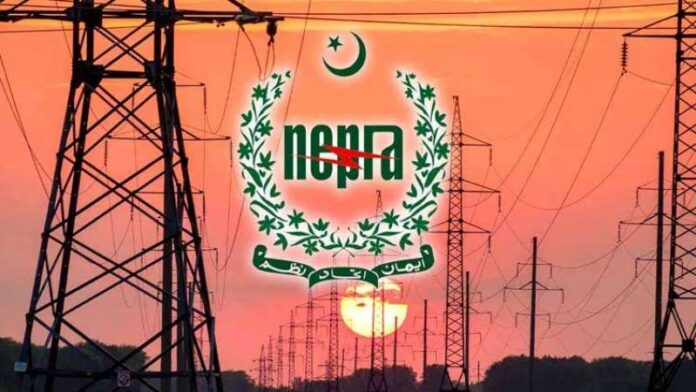ISLAMABAD: The National Electric Power Regulatory Authority (NEPRA) has issued a warning to the Power Division, cautioning that the recently announced winter electricity package could lead to higher fuel costs for consumers.
NEPRA stated that increased electricity consumption under the scheme could push fuel charges beyond Rs. 26 per unit.
In a letter to the Power Division, the NEPRA highlighted that the decrease in electricity demand by 8 percent forced the government to introduce the winter package. The initiative encourages consumers to use additional electricity at reduced rates. However, NEPRA has expressed concerns that the increased reliance on expensive fuel sources could burden consumers with higher costs.
According to NEPRA, the Power Division plans to import 34 LNG cargoes between December and February to meet energy requirements. During December, an average daily supply of 385 million cubic feet (MMCF) of re-gasified liquefied natural gas (RLNG) is anticipated for the power sector, while in January and February, this figure is expected to decrease slightly to 320 MMCF per day.
The regulator (NEPRA) pointed out that reduced hydropower generation during the winter months would necessitate a greater dependency on RLNG, which is significantly more expensive. This could increase the overall cost of electricity production, potentially offsetting the benefits of the winter package for consumers.
NEPRA warned that the higher reliance on RLNG for electricity generation might lead to a substantial rise in fuel costs, especially as LNG prices remain elevated in the global market. Additionally, it urged the Power Division to remain vigilant during the implementation of the package and to communicate potential financial impacts to consumers transparently.
The winter package, designed to boost electricity consumption during the low-demand season, provides incentives to consumers for using additional electricity. However, NEPRA’s analysis suggests that the financial implications of higher fuel costs might outweigh the benefits of the scheme.
The regulator (NEPRA) also advised the Power Division to adopt efficient fuel management strategies and maximize the use of low-cost energy sources to minimize the financial burden. NEPRA emphasized the importance of balancing affordability for consumers with the operational costs of the power sector.
With the anticipated supply of LNG over the winter months and the limited availability of hydropower, NEPRA urged the government to prioritize energy planning to prevent unnecessary financial strain on consumers and the energy sector.
According to available copies of documents, a high-level Zoom meeting was held on September 1, 2024, between officials from the Ministry of Energy (Power & Petroleum Division) and representatives from National Power Control Center (NPCC),Central Power Purchasing Agency (CPPA), Sui Northern Gas Pipeline Company Limited (SNGPL), Sui Southern Gas Pipeline Limited (SSGCL), and Pakistan LNG Limited (PLL).
The discussion focused on allocating re-gasified liquefied natural gas (RLNG) to the power sector for implementing the Winter Electricity Package for FY 2025.
The Power Division outlined the RLNG requirements, emphasizing both average demand and flexible demand for the winter months. Flexible demand refers to the supply of RLNG on an “as-and-when-required” basis without a firm commitment. The firm demand beyond December 2024 will be determined monthly as per standard practices. The RLNG demand figures shared by the Power Division are as follows:
December 2024: Average demand: 300 MMCFD; Flexible demand: 50 MMCFD
January 2025: Average demand: 400 MMCFD; Flexible demand: 50 MMCFD
February 2025: Average demand: 330 MMCFD; Flexible demand: 40 MMCFD
The Petroleum Division presented their LNG cargo procurement schedule, confirming 12 cargoes for December 2024, 10 for January 2025, and 9 for February 2025. It was highlighted that the average RLNG demand of the power sector would be met, subject to the availability of cargoes.
In principle, the Petroleum Division agreed to redirect RLNG from other sectors, including domestic and captive users, to meet the power sector’s flexible demand. However, the reallocation of RLNG will depend on the availability of resources and the overall national demand.
NEPRA, in a separate correspondence dated November 13, 2024, provided its comments on the Winter Demand Initiative FY 2025, which aims to incentivize incremental electricity consumption. While NEPRA supported the initiative to boost demand, it raised concerns about the projected fuel costs. The estimated marginal cost of Rs. 26.07 per kWh for incremental consumption could lead to higher monthly Fuel Cost Adjustments (FCA) for all consumers, potentially increasing their financial burden.
The Winter Electricity Package is designed to encourage increased power usage during low-demand months while addressing energy imbalances. However, the reliance on expensive LNG and the resulting fuel cost implications remain a concern.
The meeting concluded with the Petroleum Division reaffirming its commitment to collaborate with the Power Division to ensure RLNG allocation aligns with the winter package’s requirements, balancing cost-effectiveness and resource availability.
This cautionary advice comes as the government seeks to address seasonal electricity demand fluctuations while managing costs and ensuring energy sustainability. NEPRA reiterated the need for comprehensive strategies to mitigate the impact of rising fuel costs on consumers.























